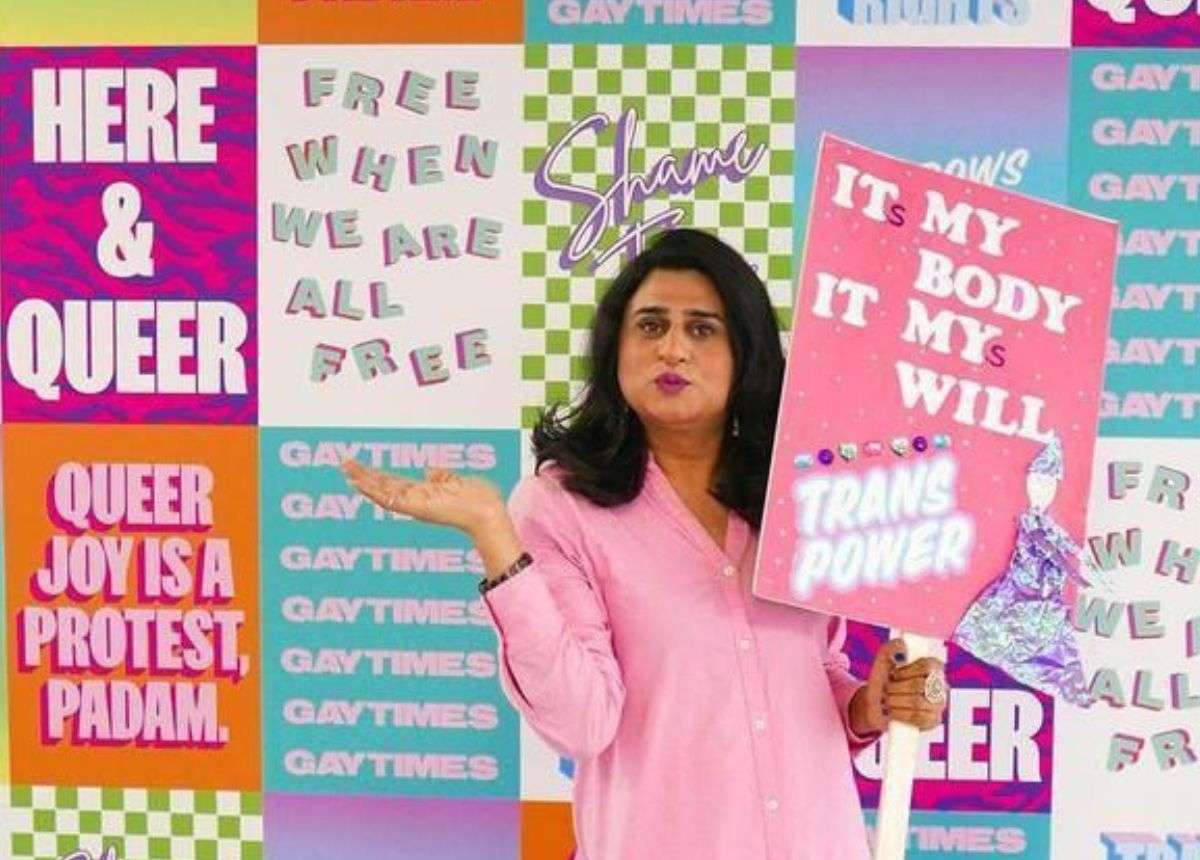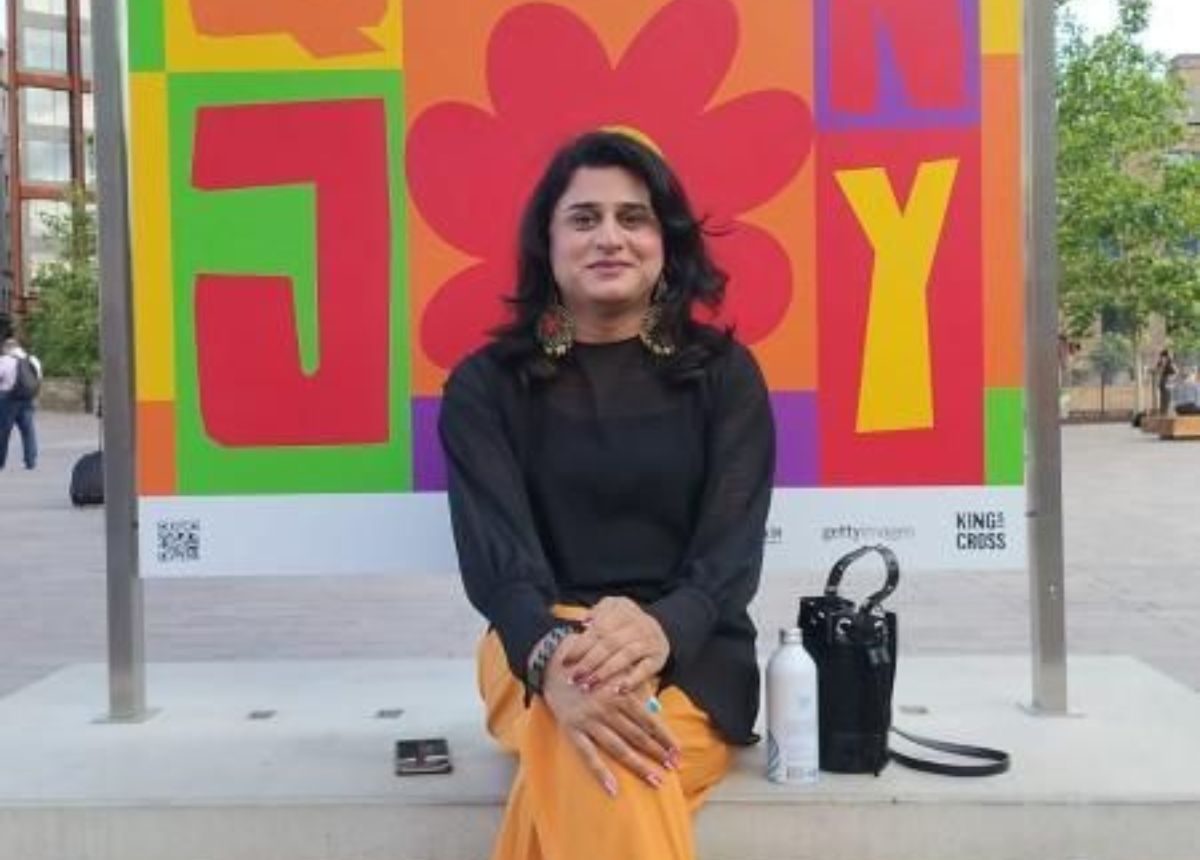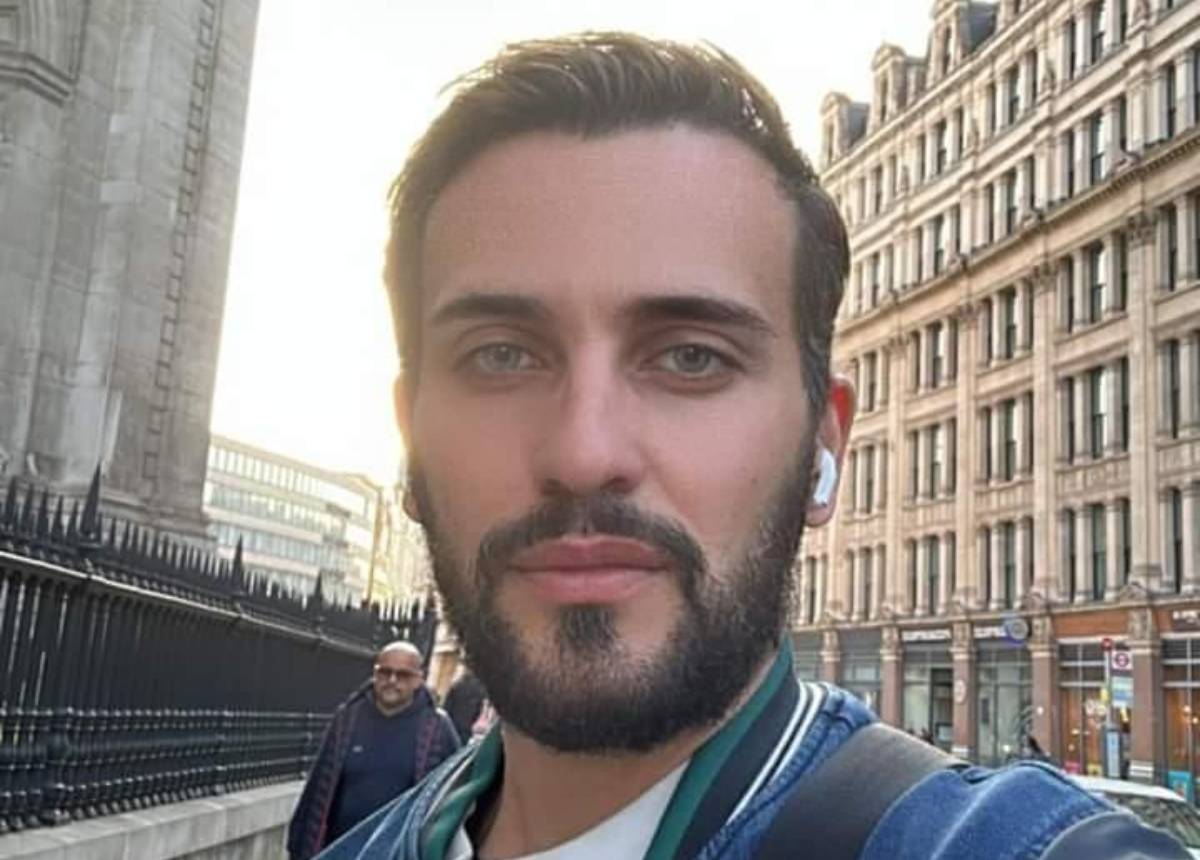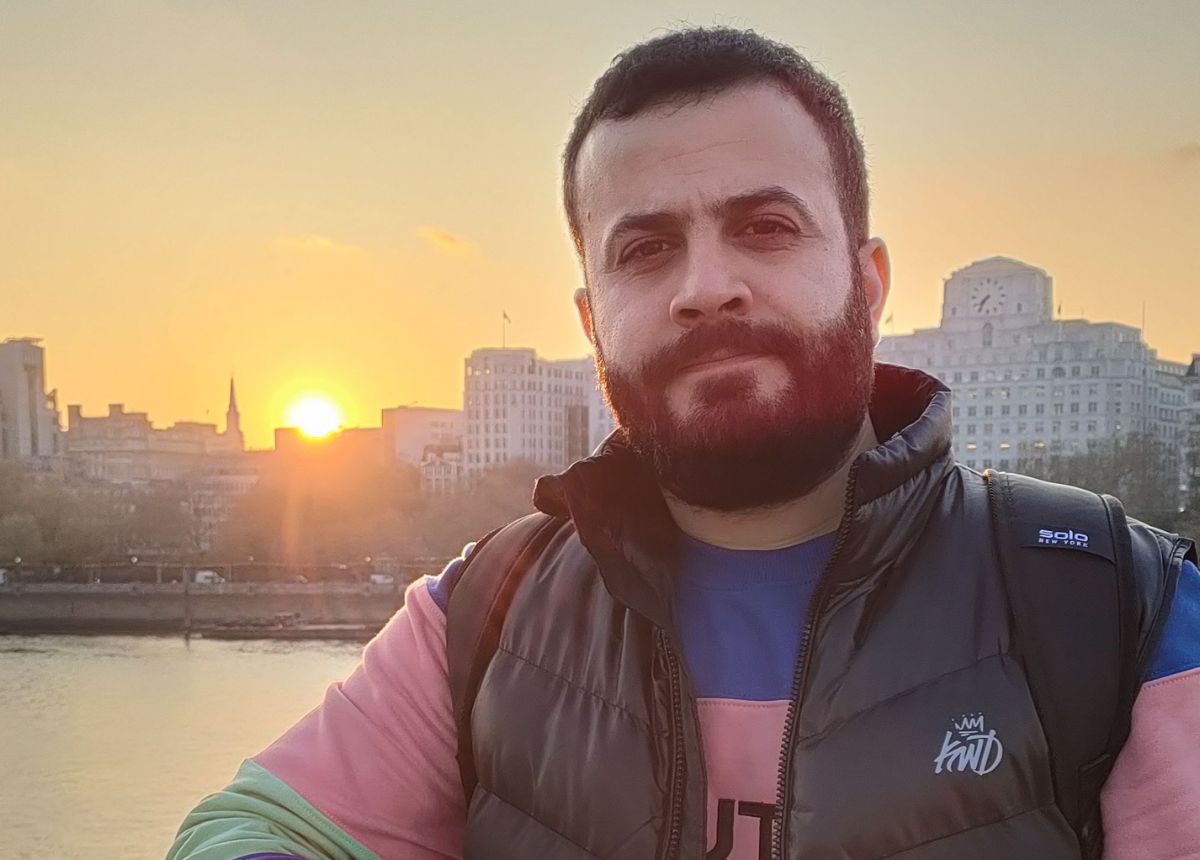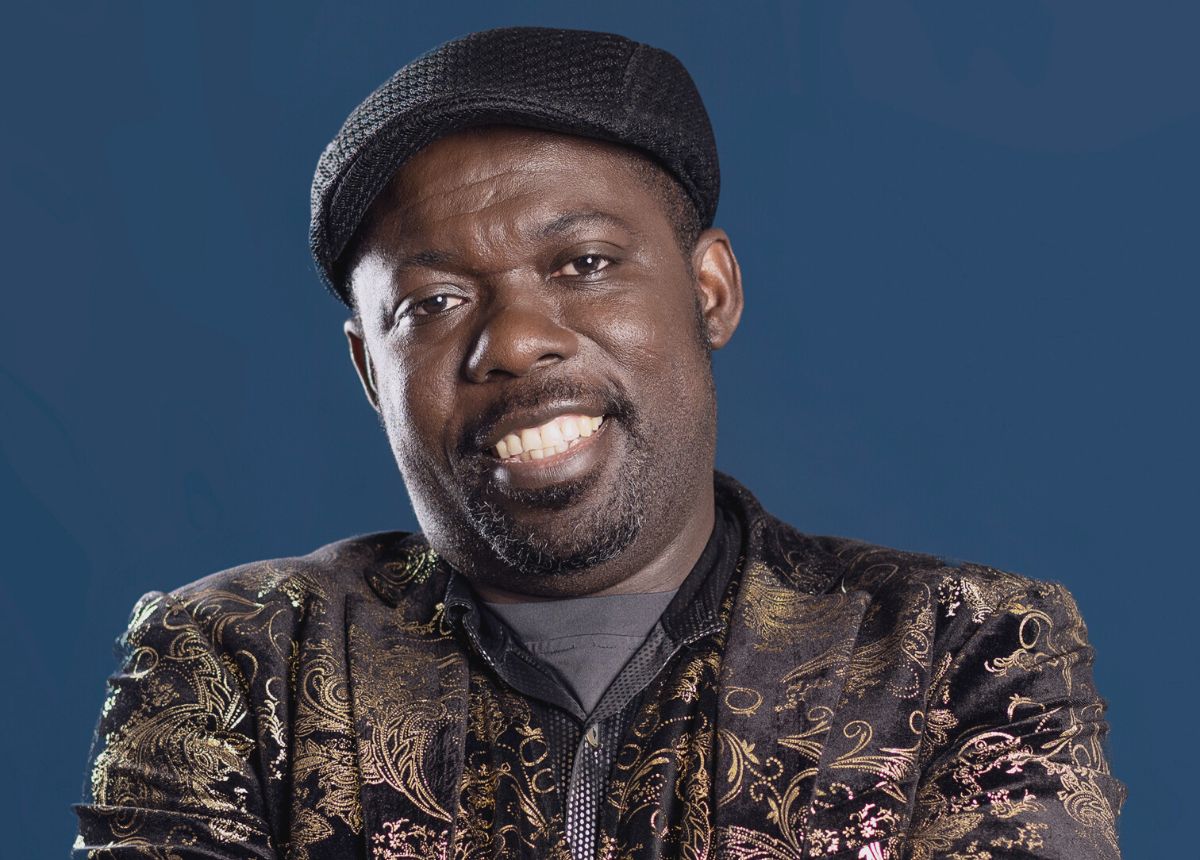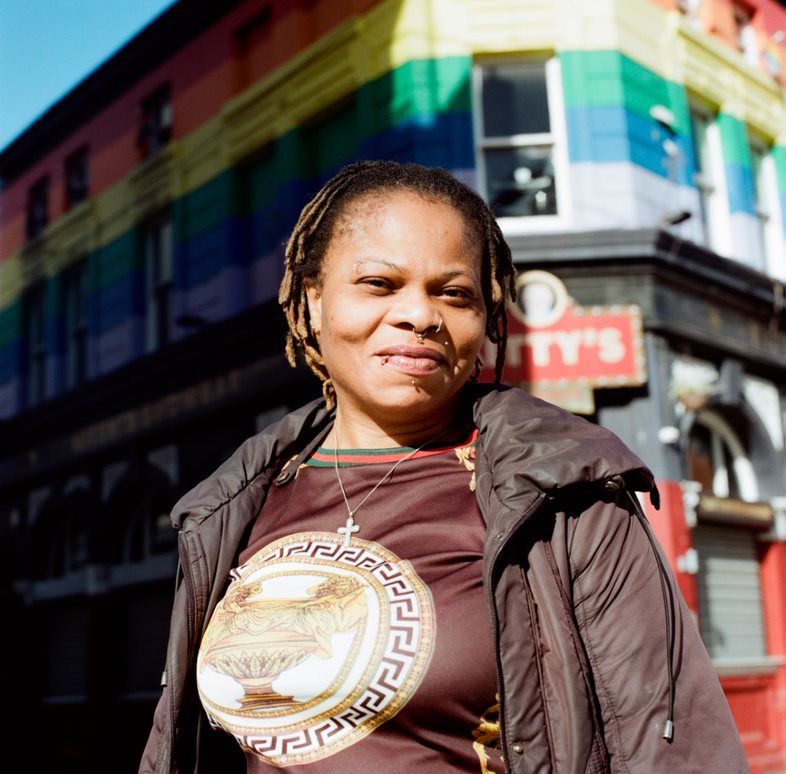Arthur Britney's story
Some people may find the topics discussed in this article triggering. This article reflects people’s stories and the hardships they have faced. If you are an LGBTQI+ person seeking asylum and would like to access emotional support please contact us.

Arthur Britney fled homophobic abuse and discrimination in their country of origin, El Salvador. They made history by setting a legal precedent when they were granted permission to remain in the UK on the grounds of their non-binary gender identity.
Arthur Britney recounts their journey of coming to terms with their gender identity, the impact of claiming asylum on their mental health and why the asylum process exacerbates the vulnerability of those claiming asylum.
El Salvador is a strongly conservative Christian country where there is a lot of stigma attached to behaviour or appearance that is considered ‘gay’.
At that time Arthur Britney identified as a gay man, and they recall frequently being the target of homophobia. Once, as Arthur Britney was walking down the street, they were surrounded by police officers who beat them up, telling Arthur Britney, “this is not a country for gays,” as they left them injured and alone on the street.

The abuse Arthur Britney faced was senseless, they were targeted simply for having dyed blonde hair. Arthur Britney had no recourse to justice – they couldn’t go to the police and had no one else to turn to.
This was not an isolated occurrence, the frequent violence and discrimination that Arthur Britney and other LGBTQI+ people faced was commonplace. Arthur Britney knew there was no way they could freely express their identity. They say, “In El Salvador I couldn’t even think of the possibility to be the person I wanted to be.”
Arthur Britney made the decision to travel to the UK to claim asylum. They couldn’t live any longer with the constant threat and violence simply for existing as themselves.
Arthur Britney arrived in the UK barely speaking any English and with no real knowledge about how the UK asylum system worked. They felt scared and uncertain, but they were also hopeful.
Arthur Britney remembers walking through Hyde Park not long after arriving in the UK and realising that they were finally safe to be themselves. After spending all their life unable to live freely in their own skin, walking through the park proudly and without fear was a profoundly joyful moment. They couldn’t stop smiling.
“In El Salvador I couldn’t even think of the possibility to be the person I wanted to be.”
One of the first things that Arthur Britney did after arriving in the UK was attend a Rainbow Migration monthly asylum meeting. Arthur Britney said that the introduction they got to the asylum system “was something I really, really needed.” Arthur Britney was “terrified” about claiming asylum, but the monthly asylum meeting and being given a human introduction to the asylum system and meeting others in the same situation as them “was like a fresh glass of water in the desert.”
They claimed asylum and it was not long after attending the monthly asylum meeting Arthur Britney was moved to Home Office accommodation in Liverpool. Arthur Britney described their experience in Home Office housing and the next stages of the asylum process as a “traumatic experience,” full of “many bad moments.”
Arthur Britney is HIV positive, so the Home Office placed Arthur Britney in accommodation in Liverpool with other residents that needed medical care. Many of those who stay in Home Office accommodation are from countries where homophobia is prevalent, and this was the case here too. Arthur Britney felt deeply uncomfortable, but it was only when another resident disclosed Arthur Britney’s HIV status to everyone that Arthur Britney’s living situation became completely intolerable. Arthur Britney says, “people were harassing me because of my status… they started to bully me.”
The Home Office moved Arthur Britney to new accommodation, and while they were glad to escape the harassment, this accommodation had a new set of problems. Other residents would frequently break the accommodation and Covid-19 lockdown rules, making Arthur Britney’s living situation both unpleasant and dangerous. The Home Office offered to move them again but the alternative accommodation they proposed was not in a metropolitan area. This meant it was away from LGBTQI+ organisations and vital support that Arthur Britney relied on. Arthur Britney says, “if I moved, I would lose my support network or have to travel long trips to access support.”
It was while living here that Arthur Britney received a refusal letter from the Home Office denying them asylum. As Arthur Britney read the letter, they felt like the air had been knocked out of them.
“I’ve received so many messages from young people who have been struggling with their gender identity.”
Arthur Britney’s solicitor believed strongly in their case, despite the initial refusal. They appealed the Home Office’s decision. But in the following months, they received another refusal letter from the Home Office denying their appeal.
Arthur Britney’s problems were not limited to this. An administrative mistake by the Home Office meant Arthur Britney would not receive their monthly asylum support payment, and on top of this, was almost kicked out of their accommodation because of it. Arthur Britney convinced the accommodation manager of the mistake, but would not receive the £37.75 a month that the Home Office gives people seeking asylum until the Home Office rectified the issue.
Arthur Britney, like nearly all people seeking asylum, was not allowed to work. While £37.75 a month is not a lot, without it they had no way to buy food or other necessities. They say, “I spent a month without payment… I was without a penny”. Arthur Britney recalls, “that was a horrible moment… I only survived with the help of local charities.”
Eventually, Arthur Britney received a back payment from the Home Office. However, they were shocked that the Home Office let this happen, they say, “If I had moved to the middle of nowhere, how would I have survived those weeks?”
This and the many complications Arthur Britney faced, along with the long and difficult process of waiting, was beginning to take its toll.
The idea of being forced to return to El Salvador was severely impacting Arthur Britney’s mental health. They explain, going back to El Salvador would force them to “live a lie… live as someone pretending, now I know how freedom tastes, I know what is the real me, what it’s like to be myself.” The idea of having to give up intrinsic parts of themself was horrifying for Arthur Britney, they say, “I had suicidal thoughts and some dark moments that totally broke me.”
Arthur Britney started going to counselling to deal with these feelings. This was useful, not only for Arthur Britney’s mental health, but it also gave them the space to talk and learn about their gender identity. This was not something they had really explored before. While talking about Arthur Britney’s experiences, their therapist also explained what being non-binary meant, and how many people didn’t identify as female or male but as non-binary.
This was a completely new concept to Arthur Britney, but one that really resonated with them. They say, “I had always been a person who has a little bit female but at the same time masculine.” After talking extensively with their therapist, and exploring the resources that she gave them, they realised this was something that fit how they felt and that they identified as a non-binary person.
While coming to terms with their gender identity was a positive experience for Arthur Britney, it was overshadowed by a further rejection from the Home Office which denied their right to appeal to the Upper Tribunal.
They knew they could not return to El Salvador, especially as a non-binary person. They say, “I was a totally different then the person who came here on the first day. I looked totally different.” Arthur Britney knew that the abuse and discrimination they had experienced when they identified as a gay man in El Salvador would be even more severe as a non-binary person. The idea of returning to El Salvador filled them with fear.
Arthur Britney decided to make a fresh claim for asylum on the grounds of their non-binary gender identity in 2019.
Arthur Britney went to court prepared to explain how they came to terms with their new gender identity and the impact of this on their asylum claim. However, the judge didn’t address Arthur Britney’s new evidence about their gender identity. They say, “they looked at the letters from my therapists, and letters from myself saying I now identify as non-binary and they ignored that.” The judge didn’t even use the correct pronouns for Arthur Britney.
After the long process Arthur Britney had already been through in claiming asylum, and the journey they had been on to find their gender identity “it was just frustrating,” Arthur Britney says.
They received a letter refusing their fresh claim not long after. Arthur Britney felt like a chasm of fear and horror had opened up in their chest when they read it. However, they couldn’t escape the feeling that their claim had not been properly considered.
Arthur Britney was given permission to appeal this decision and their final court date at the Upper Tribunal was set in September 2020. They hoped that this would be a new opportunity for their evidence to be fully considered.
After all the waiting and numerous rejections Arthur Britney was incredibly nervous. This was their final chance at being given permission to stay in the UK.
However, their final court hearing was different to the previous ones.
The judge, Judge Bruce, was the first to ask Arthur Britney how they wanted to be addressed and use the correct pronouns.
Judge Bruce spoke to Arthur Britney in Spanish, their native language, when they entered the room. She told them she was granting them the right to stay in the UK and that they had the right to be who they wanted to be.
Arthur Britney could barely process her words, they were so shocked and overwhelmed they started crying in court. Judge Bruce went on criticise the way the previous judges had handled Arthur Britney’s case. She asked Arthur Britney for their permission to enter their case as a legal precedent, allowing it to be used as an example for judges dealing with similar claims in the future. This meant not only that Arthur Britney was making history, but also meant their case could help other non-binary people claiming asylum in the future.
The process of being granted the right to stay in the UK took three difficult years. Now, Arthur Britney speaks about and advocates for other LGBTQI+ people in the asylum process. Arthur Britney says, “I’ve received so many messages from young people who have been struggling with their gender identity.” They are grateful that talking about gender identity and openly discussing LGBTQI+ people seeking asylum and their challenges helps other people.
Arthur Britney says, “while what happened to me isn’t a gift for me, it’s a gift for others.” One, that despite the hardship they experienced in claiming asylum, they are glad to be able to give.
Other stories
Vladimir’s story
Story
Miki’s story
Story
Adams’ story
Story
Staycey’s story
Story
Manono’s story
Story
Saliha’s Story
Story
Nisha’s story
Story

